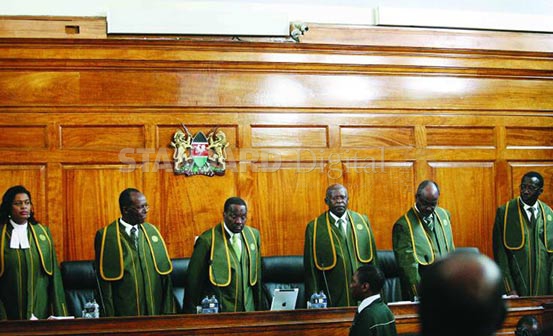×
The Standard e-Paper
Smart Minds Choose Us

Uncertainty at the country’s top-most court has assumed new heights after a top lawyer made good threats to pursue the removal of five of the seven judges.
A Supreme Court judge is also headed to court next week to quash an adverse finding against her by her employer, the Judicial Service Commission (JSC).